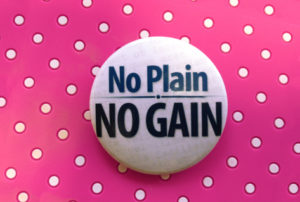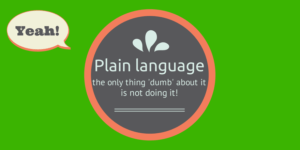How You Talk When You Preach
How You Talk When You Preach
I remember well my first week in seminary. I was overwhelmed with a lot of homework on subjects that I had little exposure to up to that point in my life. There were 3 hour classes, too. And I realized that I didn’t know the lingo well. In fact, the first word that stumped me a bit was pericope. No, it is not a reference to a periscope, just missing a letter. It refers to a section, or a passage in Scripture. Everyone else seemed to know, but I was in the dark. So I looked it up.
I looked up a lot of other words in that first week as well, and as I expanded my vocabulary, I finally began to feel like I was “in”. I began to use those words in my conversation with other seminarians. And later I was tempted to use them when I began preaching. That brings me to my topic for this post. How you talk when you preach will make a huge difference on how effective you are in reaching your audience.
We are considering what we can learn from television productions that will help us be better preachers. If you want to catch up, here’s the first post in this series.
Using Common Language When You Preach
 Television shows have mastered the skill of connecting with audiences. If they don’t master that skill, the audience will tune out, and the show will be canceled. What is the skill? It is simply the ability to speak the language of the people who are watching. Here’s the way Toni Gentilucci put it in his book, Stop Preaching and Start Communicating:
Television shows have mastered the skill of connecting with audiences. If they don’t master that skill, the audience will tune out, and the show will be canceled. What is the skill? It is simply the ability to speak the language of the people who are watching. Here’s the way Toni Gentilucci put it in his book, Stop Preaching and Start Communicating:
“I believe what drives television’s instant rapport with the audience is that they speak in a language the viewers understand and they do it in a conversational manner In short, it’s all about what they say–their choice of words–and how they say it–their delivery–the what and the how.” (page 89)
In other words, how you talk when you preach can be the game changer for your listeners.
The “What” of How You Talk When You Preach
The “what” of preaching refers to the words that you use. Are you like I was for a too long in my early attempts at preaching, trying to impress people with my vocabulary and vast knowledge? Or do you use old-fashioned “churchy” language in your presentation? If so, people are likely to “turn the channel” in their heads and tune you out.
How Not to Do it
A revival broke out in the high school that I attended years ago. As a result, a large group of us began to meet to worship and study the Scriptures on Thursday evenings. We called it, “The Happening”. We led our own worship, our own Bible studies, all without adult supervision. But then some adults felt like they had to come in to “help” us.
 These were good people–don’t get me wrong here. They were well-intentioned, and desired to see our faith grow. But one woman kept encouraging us to use the King James Version of the Bible for our Bible study. If you are unfamiliar with it, you should know that the King James, or KJV is an English translation of the Bible made in the 16th century, and the language reflects that. When a few of us complained that we couldn’t understand the language, she replied, “I know. I don’t really understand it, either. So when I “get it”, I know it’s the Holy Spirit.”
These were good people–don’t get me wrong here. They were well-intentioned, and desired to see our faith grow. But one woman kept encouraging us to use the King James Version of the Bible for our Bible study. If you are unfamiliar with it, you should know that the King James, or KJV is an English translation of the Bible made in the 16th century, and the language reflects that. When a few of us complained that we couldn’t understand the language, she replied, “I know. I don’t really understand it, either. So when I “get it”, I know it’s the Holy Spirit.”
This, I believe, is the wrong way to go about using language. We should be using words in such a way that the people listening to us will understand us clearly, without having to interpret what we are saying.
I am going to pick this subject up in the next post, and talk about the “how” of how you talk when you preach to people. But here is Dr. Bryan Chapell, an internationally known expert on preaching and author of several books on the subject. Note his first common mistake in preaching.




Leave a Reply
Want to join the discussion?Feel free to contribute!